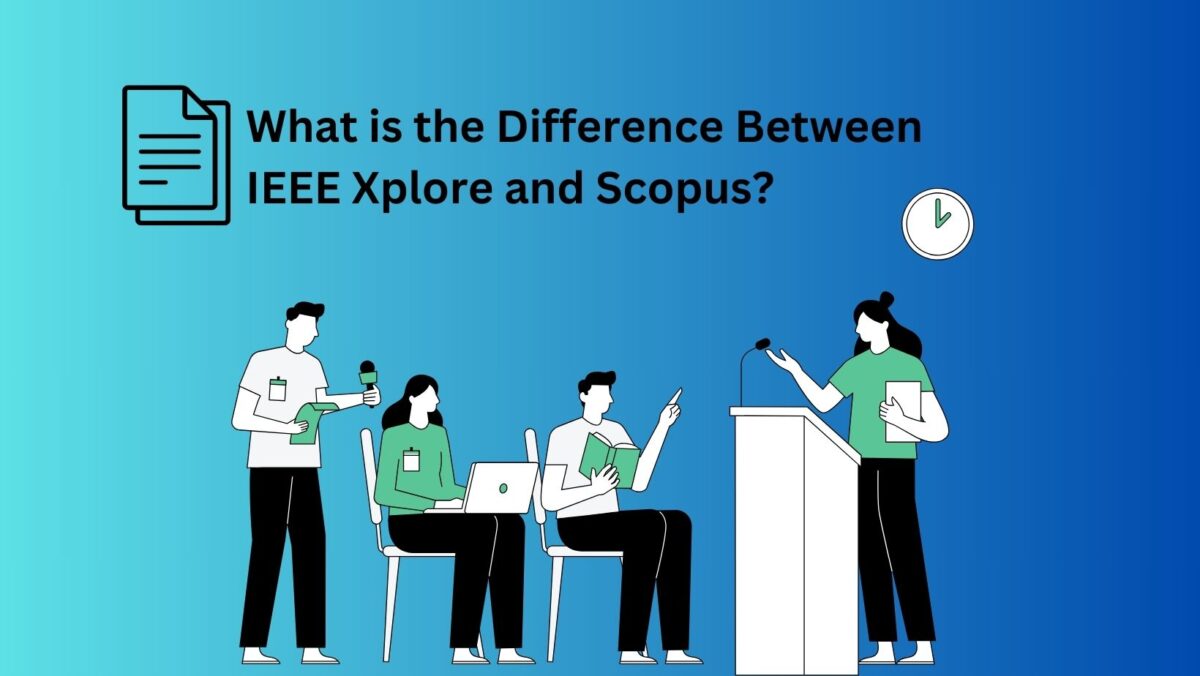Understanding the Differences: IEEE Xplore vs. Scopus
Academia and research professionals seek to disseminate their work and discover cutting-edge studies in their field, two prominent platforms come into play: IEEE Xplore and Scopus. Though sometimes conflated, these databases serve quite distinct roles for Scopus Indexed Conferences and Scopus Indexed Journals for the year 2024 and beyond. Let’s delve into the nuances that differentiate these two resources.
What is IEEE Xplore?
IEEE Xplore is a digital library providing access to the world’s highest quality technical literature in engineering and technology. It encompasses a vast collection of:
- Conference papers
- Journal articles
- Standards
- eBooks
- Educational courses
It is especially renowned for its repository of literature within electrical engineering, computer science, and electronics.
Features of IEEE Xplore
- Quality Content: IEEE Xplore is known for the high standard of its technical papers, primarily published by the Institute of Electrical and Electronics Engineers (IEEE).
- Accessibility: The platform offers user-friendly access to millions of documents, including research articles, conference proceedings, and more.
- Search Functionality: Advanced search options enable users to find precise results tailored to their research needs.
What is Scopus?
Scopus, on the other hand, stands as one of the largest abstract and citation databases of peer-reviewed literature. Its expansive scope covers:
- Scientific journals
- Books
- Conference proceedings
Scopus has a broader interdisciplinary focus including science, technology, medicine, social sciences, arts, and humanities.
Features of Scopus
- Citation Tracking: Scopus offers comprehensive citation analysis tools, allowing researchers to gauge the impact of their work and explore the research landscape.
- Breadth of Coverage: It covers a wider range of subjects compared to IEEE Xplore and includes a vast amount of Scopus Indexed Journals and Scopus Indexed Conferences.
- Author Profiles: Scopus provides detailed author profiles, which help in tracking authors’ publication history and h-index.
Comparative Analysis: IEEE Xplore vs. Scopus
The table below provides a quick comparative overview of the two databases:
| Feature | IEEE Xplore | Scopus |
|---|---|---|
| Focus Area | Engineering and technology | Broad, including science, technology, and humanities |
| Content Type | IEEE publications, standards, and select others | Diverse peer-reviewed literature from various publishers |
| Usage | Access to IEEE materials, standards research | Citation analysis, comprehensive literature review across disciplines |
| Strength | Depth in electrical engineering and related fields | Range of content and citation tracking features |
Implications for Academics
Academics aiming to publish their work should choose platforms that best align with their field and the audience they wish to reach. For instance:
- Engineering Professionals: Might prefer IEEE Xplore for the depth of resources in their field, particularly when dealing with electrical engineering and technology.
- Multidisciplinary Researchers: Might opt for Scopus due to its widespread coverage and ability to track citations across various fields.
Scopus Indexed Conferences and Journals 2024
Selecting conferences and journals, researchers should consider if they are Scopus indexed or associated with IEEE. Being indexed implies a stamp of quality and recognition within the scholarly community.
Both IEEE Xplore and Scopus offer valuable resources for the research community, though with divergent scope and features. Understanding the particular strengths of each enables researchers to effectively enhance their work, whether they’re targeting Scopus Indexed Journals or Scopus Indexed Conferences in 2024 or leveraging the subject-specific depth of resources like IEEE Xplore.

